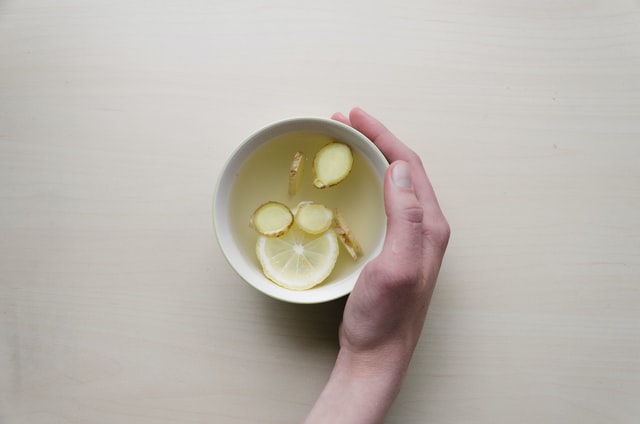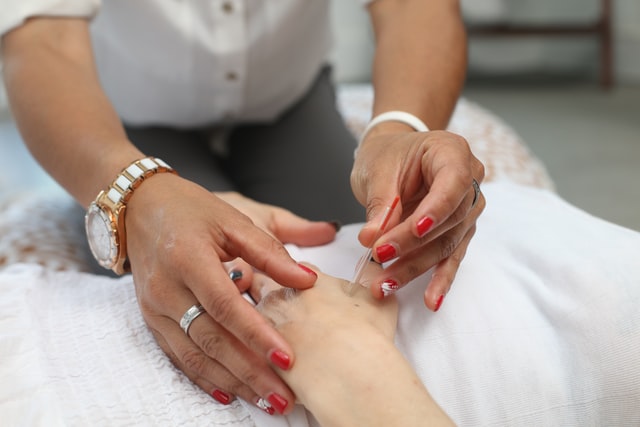What's a cold uterus and how does it affect fertility? A TCM expert explains


Have you ever been told by someone older not to have cold drinks or food? It's apparently "not good for your womb".
Well, you probably think it's an old wives' tale. But before you brush it off and continue sipping on your favourite daily iced coffee or tea, know this health advice: absurd as it sounds, is not unfounded - it actually has roots in TCM practice.
We got principal TCM physician Edmund Pang from EMW Physiotherapy & TCM Clinic to answer our burning questions about whether we should be having cold drinks and more.
"Cold uterus" is a term frequently used in Traditional Chinese Medicine (TCM), usually associated with unexplained infertility and menstrual pain. However, the meaning of "cold uterus" is often not fully understood.
The proper TCM term for "cold uterus" is Kidney Yang deficiency, and it can be a primary cause for sub-fertility in both men and women.
Symptoms include cold limbs, lower back pain, low libido, painful menstruation, dark blood clots during periods, low basal body temperature, frequent urination and water retention/edema.
Conditions include infertility, endometriosis, adenomyosis and fibroids to name a few.

Causes include intake of too much foods that are cold in nature, such as raw foods and salads, icy cold drinks and fruits, as well as spending long hours in air-conditioned areas.

The keyword here is long-term consumption. An occasional glass or two won't hurt, but a sustained period of icy cold drinks and fruits out from the fridge during your adolescent years and working years can cause Kidney Yang deficiency over time.
In terms of TCM, cold causes sluggishness and stagnation whereas warmth promotes circulation. An analogy used by our ancestors in TCM is "there is widespread growth in spring and summer", and "withering and hibernation in autumn and winter".
In simpler terms, there can't be growth when there is extreme coldness, which is the same with our reproductive system where a cold uterus can't facilitate any growth of blastocysts nor implantation.
Even if there is implantation, there might be a high chance where it won't continue to properly maturate, leading to miscarriage.
In terms of modern Science, the first half of a menstrual cycle is the follicular phase where estrogen dominates, and after ovulation in luteal phase, progesterone dominates and the basal body temperature (BBT) of a woman rises.
This correlates with Yin and Yang of the cycle, and when BBT increases during luteal phase, it is considered the Yang phase of the cycle.
Based on the principles of Yin Yang theory, Yang is the warming energy which drives blood flow and works as a catalyst for ovulation and implantation. What this means is that - during this phase, the rise of progesterone and body temperature allows the best condition for implantation of a fertilised embryo.
Kidney Yang deficiency often leads to inadequate luteal phase - the BBT readings in the second phase are not as high as they should be, or the temperature does not stay raised for long enough.
This is a condition known as luteal phase defect. A luteal phase defect is associated with both infertility and early miscarriage.

Diet and lifestyle wise, unfortunately, cold foods and drinks are not recommended for long-term consumption in the TCM approach. Women who are trying to conceive should:

In terms of TCM, everyone is viewed as a unique individual and there is no one-size-fits-all approach in treating cold uterus and fertility issues.
Numerous clinical studies have shown that Chinese herbs and acupuncture can help in the treatment of Kidney Yang deficiency-related fertility issues by improving ovarian and uterine functions, thereby improving chances of conception and pregnancy.
[[nid:491545]]
While TCM can't turn back time and improve egg quality in an older woman, it may - by improving the growth of the dominant follicle within an ovary that functions more effectively through treatment - improve the environment where an egg matures in, influencing its maturity and quality indirectly.
This includes improving ovarian and uterine blood flow, regulating endocrine hormones such as follicle-stimulating hormone (FSH) and luteinising hormone (LH) and regulating estrogen and progesterone levels.
Chinese medicine and acupuncture can also improve the thickness of the endometrial lining (and thus the endometrial receptivity to an embryo), thereby increasing the chances of a successful conception and pregnancy.
Likewise in conventional science, TCM advocates that prevention is better than cure. A diet and lifestyle aimed at preventing or reducing exposure to the cold is strongly encouraged as it can help to improve one's overall well-being and fertility.
It is wise to seek a licensed TCM practitioner for consultation if you find that you have the symptoms of a cold uterus, as self-medication is strongly discouraged.
This article was first published in Shape.